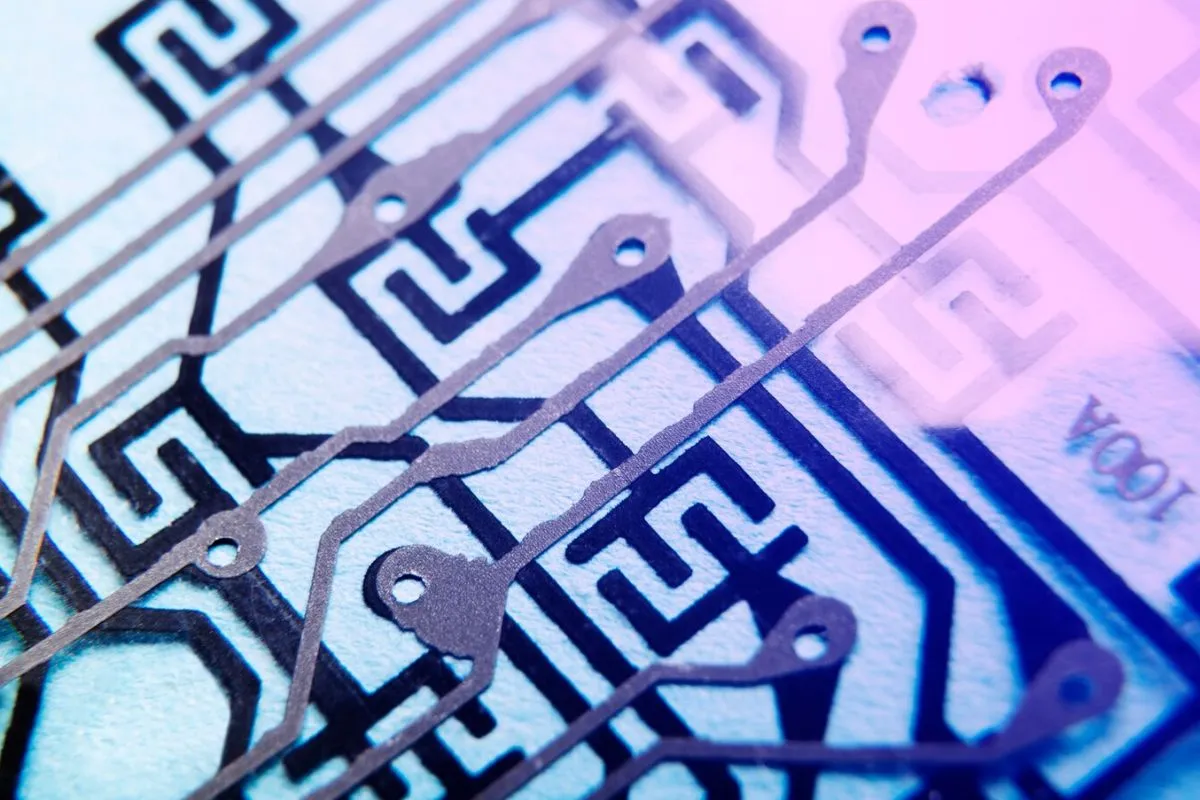Quantum Computing Algorithms with Rare Math Techniques are revolutionizing the computational landscape by integrating unique mathematical methods. These algorithms are not only exploring new possibilities but also enhancing efficiency in solving complex problems.
As quantum computing progresses, leveraging Rare Math Techniques in algorithm design is essential. They provide robust frameworks for tackling previously unsolvable dilemmas.
The intersection of quantum computing and rare mathematical techniques is becoming a pivotal research area. This synergy promises to unlock novel applications across diverse fields.
Understanding Quantum Computing
Quantum Computing transcends classical computing by using quantum bits or qubits, which can exist in multiple states simultaneously. This fundamental difference is what makes it vastly more powerful.
Unlike classical bits, which are binary (0 or 1), qubits can be in a superposition of states. This allows quantum computers to process a higher volume of data in parallel compared to their classical counterparts.
Another key aspect is entanglement, where qubits become interconnected, and the state of one can instantly affect the state of another, no matter the distance. This phenomenon is critical for enhancing Quantum Computing efficiency.
The Role of Rare Math Techniques
Rare Math Techniques are mathematical methods not commonly used in mainstream algorithm design. These techniques bring new perspectives and solutions to challenging computational problems.
Examples of rare techniques include advanced topological methods, exotic algebraic structures, and complex number systems. Integrating these into Quantum Computing Algorithms opens up innovative pathways.
These techniques are particularly useful in areas where traditional methods fail. They provide alternative approaches and often result in more elegant, efficient solutions.
Topological Quantum Computing
Topological Quantum Computing leverages properties of quantum states that remain unchanged under continuous deformations. This property makes it robust against certain types of errors.
This approach uses anyons, particles that exist in two-dimensional spaces, which obey unconventional statistics. The braiding of anyons forms the basis of topological quantum operations, providing fault tolerance.
Implementing topological methods enhances the stability and reliability of quantum computations, ensuring more accurate and efficient outcomes than conventional methods.
Algebraic Geometry in Quantum Algorithms
Algebraic Geometry, a branch focusing on zero sets of polynomials, plays a pivotal role in optimizing quantum algorithms. It helps in formulating problems and finding efficient solutions.
This rare technique aids in the design of algorithms for quantum simulation and solving equations in high-dimensional spaces. The intersection with quantum computing leads to significant advancements.
By applying algebraic geometry, researchers can exploit the structure of polynomial solutions, simplifying complex quantum problems and improving computation efficiency.
Utilizing Complex Numbers and Quaternion Algebra
Complex numbers and quaternion algebra are mathematical constructs that enhance quantum algorithm design. They offer new dimensions for data representation and manipulation.
Complex numbers, with their real and imaginary components, are fundamental in describing quantum states and operations. Quaternion algebra extends these concepts to four-dimensional spaces.
These techniques provide powerful tools for developing efficient algorithms, particularly in quantum machine learning and cryptography, where higher-dimensional calculations are crucial.
Applications of Quantum Computing Algorithms with Rare Math Techniques
The integration of Quantum Computing Algorithms with Rare Math Techniques has vast applications. From cryptography to machine learning, these methods are transforming various industries.
In cryptography, these algorithms enhance security by utilizing complex mathematical structures that are hard to break. Quantum cryptography ensures secure communication channels resistant to hacking.
In machine learning, quantum algorithms accelerate training times for large datasets. They analyze patterns and correlations more efficiently, leading to faster and more accurate predictions.
Optimization Problems
Quantum computing excels in solving optimization problems that are computationally intense for classical computers. Rare Math Techniques further enhance this capability.
These techniques help in formulating more efficient algorithms for complex optimization issues like supply chain management, financial modeling, and scheduling.
- Supply Chain Optimization: Reducing costs and improving efficiency.
- Financial Modeling: Enhancing predictive analytics and risk assessment.
- Scheduling: Optimizing resource allocation and time management.
By leveraging quantum algorithms with advanced mathematical methods, businesses can achieve operational excellence and strategic advantages.
Quantum Machine Learning
Quantum Machine Learning (QML) combines quantum computing with machine learning techniques to create powerful predictive models. The integration of rare mathematical techniques enhances these models.
QML algorithms can process and analyze massive datasets at unprecedented speeds. This capability transforms sectors such as healthcare, finance, and marketing with advanced data insights.
These models improve pattern recognition, anomaly detection, and recommendation systems, leading to more personalized and accurate solutions in various applications.
Drug Discovery and Material Science
Quantum computing algorithms hold significant potential in drug discovery and material science. Rare math techniques play a crucial role in accelerating these research fields.
Quantum algorithms can simulate molecular structures and interactions more precisely. This precision speeds up the discovery of new drugs and materials with desired properties.
Incorporating rare mathematical methods enhances the efficiency and accuracy of these simulations, leading to breakthroughs in medical treatments and advanced materials.
The Future of Quantum Computing with Rare Math Techniques
The future of Quantum Computing Algorithms with Rare Math Techniques is promising. Ongoing research and development are expected to yield even more innovative solutions.
Interdisciplinary collaboration will play a vital role. By bringing together experts from mathematics, computer science, and engineering, the potential for groundbreaking advancements increases.
As these algorithms continue to evolve, we can anticipate significant impacts on industries and everyday life, resulting in smarter, faster, and more secure technologies.
Challenges and Considerations
Despite the promising future, there are challenges associated with integrating rare math techniques into quantum computing. These challenges include complexity, computational resources, and scalability.
Developing and optimizing these algorithms require substantial computational power. Current quantum hardware limitations can hinder widespread adoption.
However, ongoing advancements in quantum hardware and algorithms are expected to overcome these challenges, making Quantum Computing with Rare Math Techniques more accessible.
Educational and Research Opportunities
The field offers vast educational and research opportunities. Academic institutions are increasingly offering courses and programs focused on quantum computing and rare mathematics.
Research initiatives are also expanding, with significant funding dedicated to exploring these intersections. This investment drives innovation and propels the field forward.
Students and researchers are encouraged to delve into this exciting area, contributing to the development of next-generation computational solutions.
Real-World Impact and Industry Adoption
Industries are starting to recognize the benefits of integrating quantum computing algorithms with rare mathematical techniques. Early adopters are already seeing improvements in efficiency and problem-solving capabilities.
As more real-world applications emerge, the adoption rate is expected to increase. Companies in sectors such as pharmaceuticals, finance, and logistics are particularly poised to benefit.
The impact of these advancements will be far-reaching, fostering innovation and driving economic growth in the quantum era.
Paving the Path to Computational Excellence
In summary, Quantum Computing Algorithms with Rare Math Techniques are at the forefront of computational innovation. They enhance problem-solving capabilities, opening up new avenues for research and application.
As these technologies evolve, their real-world impact will grow, benefiting various industries. Stay informed and explore educational opportunities to be part of this groundbreaking field.
Embrace the future of quantum computing by diving deeper into these advanced algorithms and techniques. The journey towards computational excellence is just beginning!
Frequently Asked Questions
What are Quantum Computing Algorithms with Rare Math Techniques?
These are quantum algorithms that utilize unconventional mathematical methods to solve complex problems more efficiently and effectively.
How do Rare Math Techniques enhance Quantum Computing?
They offer alternative approaches and solutions, often providing more elegant and efficient results compared to traditional methods.
What are some applications of these algorithms?
Applications range from cryptography and machine learning to drug discovery and optimization problems in various industries.
What challenges exist in integrating these techniques?
Challenges include the complexity of developing these algorithms, computational resource requirements, and current hardware limitations.
How can one learn more about this field?
Students and researchers can explore academic programs, online courses, and research initiatives focused on quantum computing and rare mathematical techniques.




